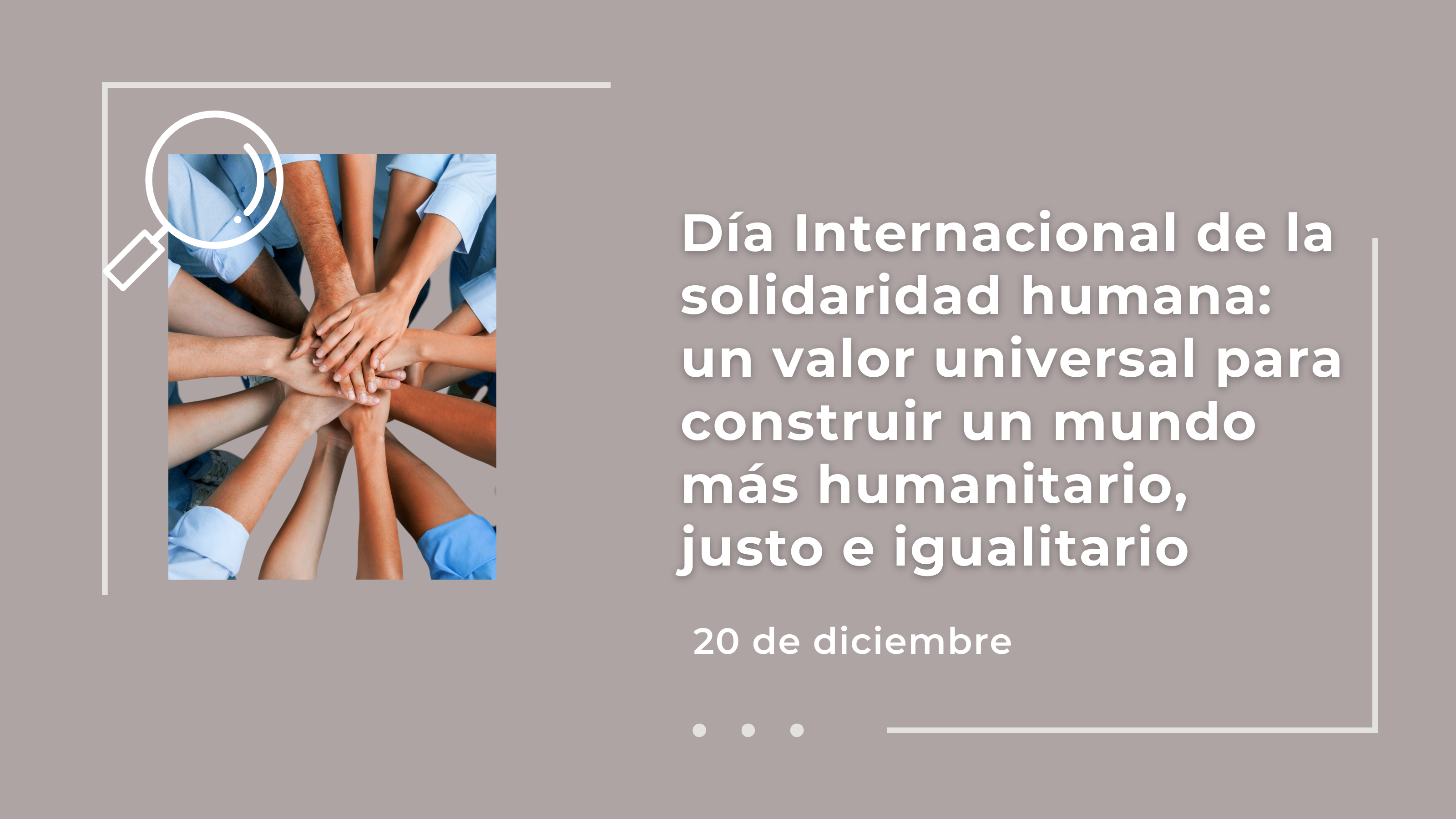
International Day of Human Solidarity: a universal value for building a more humanitarian, just and egalitarian world
“Many small people, in small places, doing small things, can change the world.” Eduardo Galeano.
The International Day of Human Solidarity is celebrated every December 20. This is due to the fact that, in 2005, the United Nations General Assembly in its Resolution 60/209 declared the creation of this ephemeris.
Regarding the definition of the word “solidarity”, I believe it is appropriate to highlight the concepts developed by the jurist Jorge Carpizo in his book “The Human Rights of Solidarity”. There the author identifies the set of rights that make up the rights of solidarity, that is, he exposes an integral concept of solidarity that includes: a) right to peace; b) right to development; c) right to a healthy and ecologically balanced environment; d) right to the preservation of natural resources; e) right to water, and f) right to benefit from the common heritage of mankind.
With regard to the background to Resolution 60/209, first of all, we can highlight the Millennium Declaration issued by the General Assembly in 2000, which identifies solidarity as one of the fundamental values for international relations in the 21st century, and specifies that “…global problems must be addressed in such a way that the costs and burdens are fairly distributed, in accordance with the fundamental principles of equity and social justice. Those who suffer, or those who benefit least, deserve the help of those who benefit most”.
As a second precedent, in 2002, the General Assembly created the World Solidarity Fund to eradicate poverty and promote human and social development in the least industrialized countries. To this end, it invited Member States, international organizations, the private sector, relevant institutions, foundations and individuals to make voluntary contributions.
Based on these advances, the General Assembly adopted Resolution 60/209, which sought to promote solidarity as a fundamental and universal value on which relations among peoples should be based, and also stated that the eradication of poverty is the greatest challenge facing the world today, and that it is an indispensable condition for ensuring sustainable development.
Also in 2005, the predecessor of the Human Rights Council and the United Nations Commission on Human Rights, through Resolution 2005/55, created the position of Independent Expert on human rights and international solidarity, responsible for establishing guidelines, criteria, norms and principles to promote and protect rights closely linked to the fundamental value of solidarity. In turn, this figure also prepares reports related to these issues. In fact, in the last of these, published in July of this year, the expert Obiora Chinedu Okafor gave an overview of the activities carried out during his mandate, underscored the need to revise the existing draft declaration on the right to international solidarity, and stated the need for the Council and the Assembly to adopt or approve the draft declaration.
As put forward by the UN, the International Day of Human Solidarity is a day to celebrate our unity in diversity, to remind governments to respect their commitments to international agreements, to raise public awareness of the importance of solidarity, to encourage debate on ways to promote solidarity for the achievement of the Sustainable Development Goals, and to take action and seek new initiatives for the eradication of poverty.
In turn, through its institutions, it seeks to foster international solidarity. One example is the UN Refugee Agency (UNHCR), which, in addition to dedicating itself to saving lives, safeguarding rights and building a better future for people forced to flee their homes due to conflict and persecution, promotes solidarity and inclusion of refugees.
Our current context calls for a strong commitment to international solidarity. Through small gestures we can counteract hate speech and discrimination, raise awareness of the violence generated by armed conflict and, above all, respect each other without distinction.
Belén Ravarini, FIBGAR collaborator.



